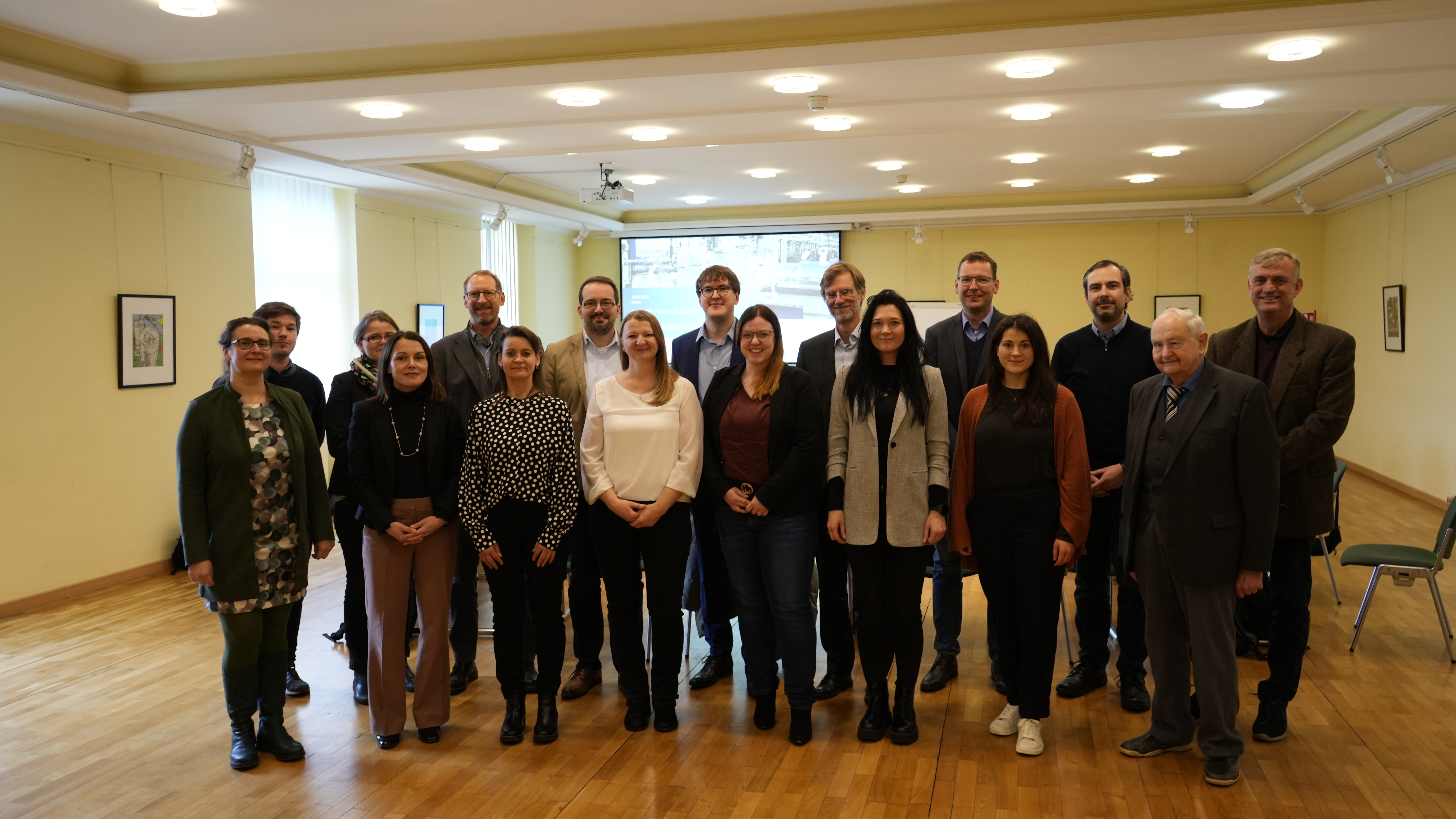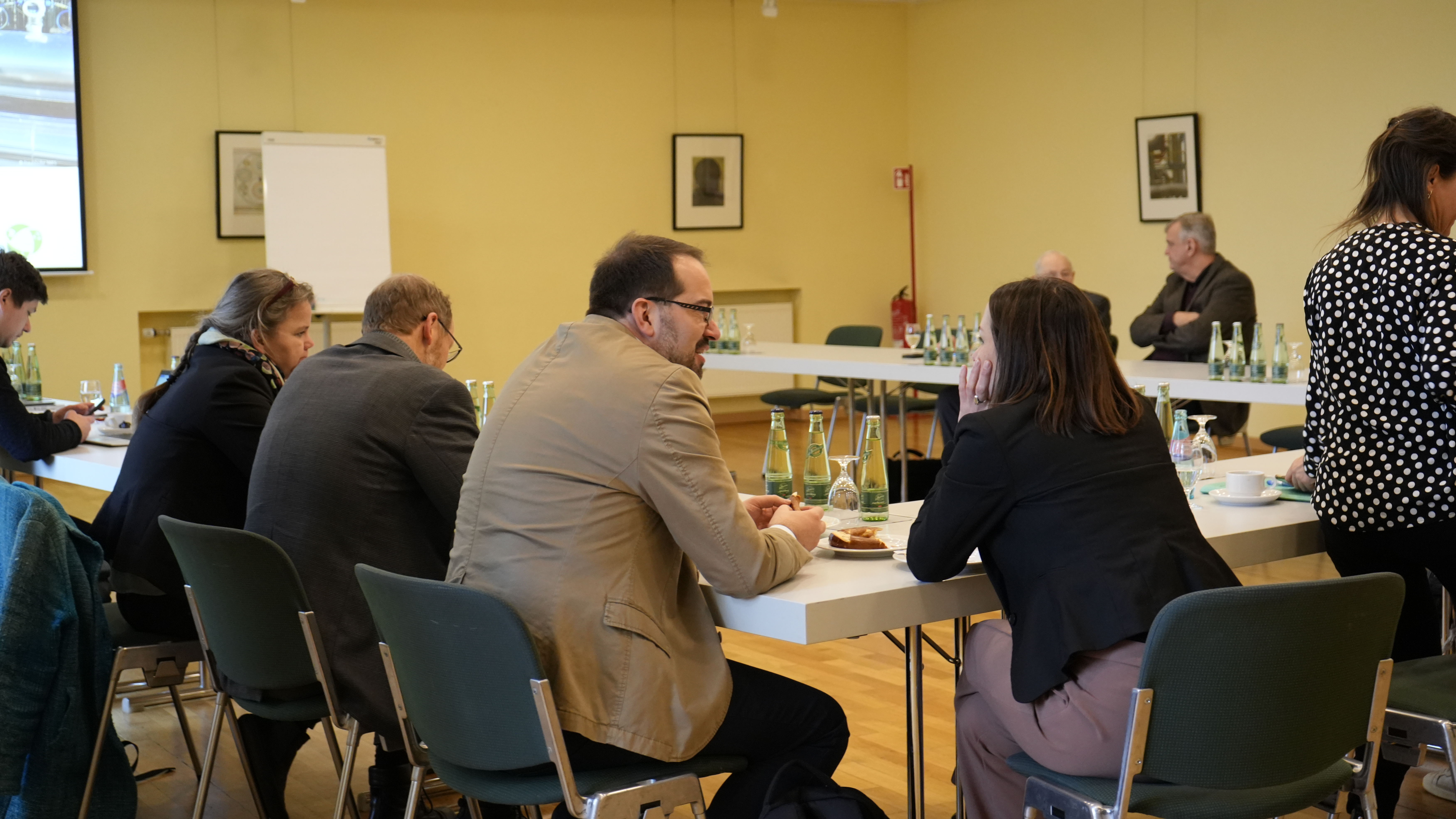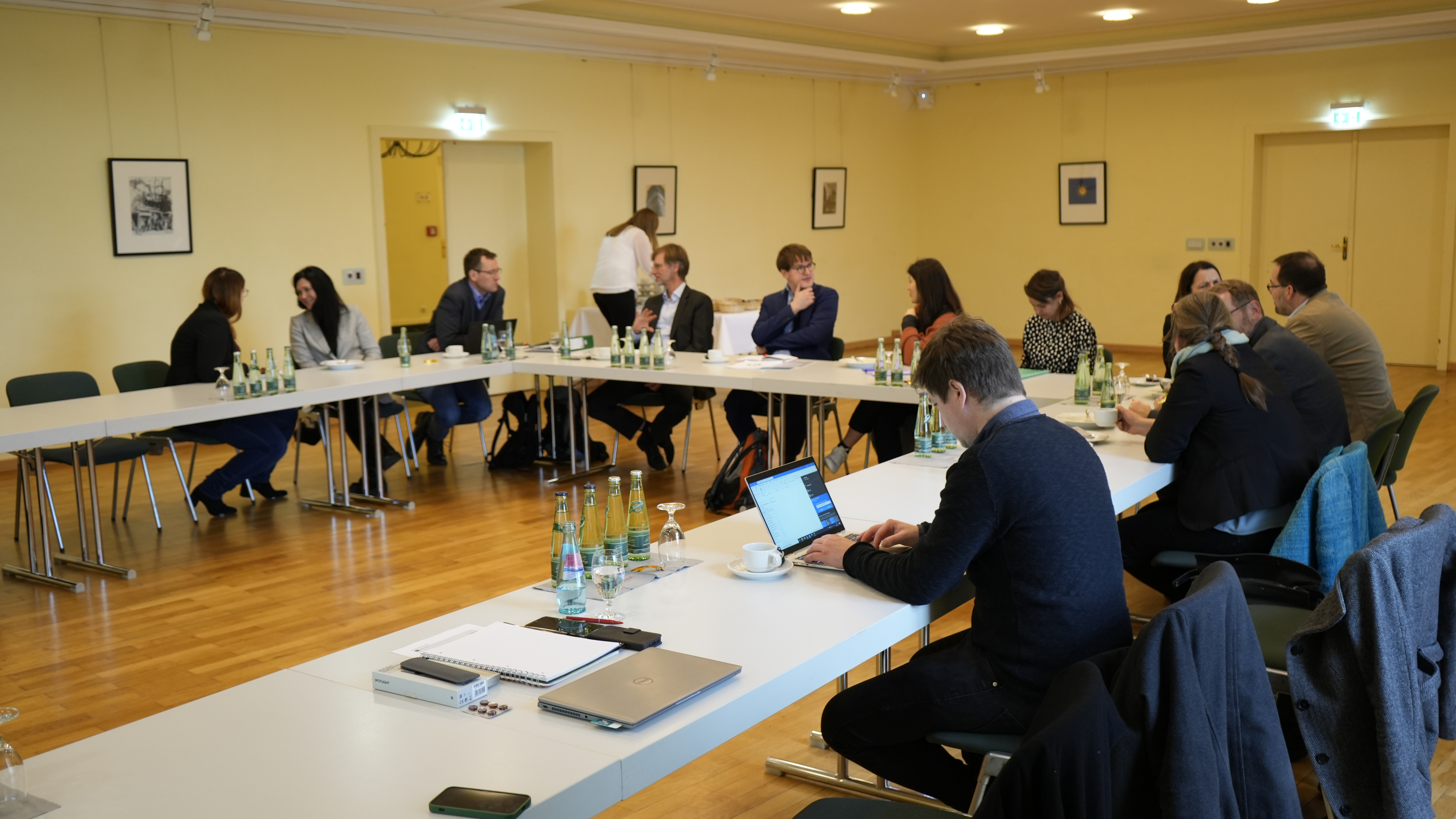House of Transfer gets underway: Knowledge transfer for technology-oriented structural change in Central Germany
The House of Transfer (HoT) project started yesterday in Leuna. The coming four years are set to see the development of a central hub for all stakeholders in the biobased economy, chemical, plastics, and hydrogen sectors in the Central German mining region. Led by the Fraunhofer Institute for Wind Energy Systems IWES, the project team, which comprises the project partners BioEconomy e. V., the Fraunhofer Center for International Management and Knowledge Economy IMW, the Chemie+ cooperation network, Martin Luther University Halle-Wittenberg, and POLYKUM e. V., has set itself the goal of providing support for the accelerated implementation of the structural change. The project is being funded by the Federal Ministry for Economic Affairs and Energy (BMWK) to the tune of €4.6 million.



The transformation of the industry in the Central German mining region into a circular economy based on renewable raw materials can only be successful with cross-sector and interdisciplinary cooperation. The climate protection goals of the EU and German Federal Government to be achieved by 2030 are setting the tempo and speeding up the implementation of climate protection measures in many sectors. Innovative and quicker solutions are also being sought in the fields of hydrogen, sustainable raw materials, e-fuels, and the circular economy. New technologies, materials, and processes contributing to a successful structural change and defossilization of the industry are also appearing all along the value chain in these areas. Securing the future of the raw materials network in the Central German Chemical Triangle is becoming a major challenge that must be shaped in the coming years.
Knowledge transfer for target-oriented, economic activities in the Central German mining region
This is where the »HoT« project comes into play. Initiatives which were previously running in parallel are now set to be bundled in order to be able to transfer findings and research results into industrial practice with greater speed. »HoT« does so employing a holistic approach: The project aims to create a market overview of the changing value chains in the core sectors of biobased economy, chemistry, plastics, and hydrogen as well as scenarios for future developments and their effects on the labor market, for example. This knowledge will be prepared and processed in the »HoT« project before being made publicly available to all interested parties. Recommendations for action for political, economic, scientific, and social actors will also be derived. »HoT will thus establish a platform on which actors in the Central German mining region can gain an overview of the market and accordingly make strategic decisions more easily, especially as far as future economic activities are concerned.
Furthermore, the project will construct a (cross-sector) network making it possible to find the right contact persons for individual questions. As a central hub, the »HoT« already interlinks existing activities: it brings together technology providers with industrial needs, project ideas with investors, and start-ups with experienced players. Dr.-Ing. Sylvia Schattauer, Acting Director of Fraunhofer IWES, explained: »There are already a large number of existing technologies and approaches spread across science, business, politics, and society. Our aim with the HoT project is to network these approaches and, in doing so, contribute to higher transparency. After all, it will only be possible to establish a sustainable circular economy successfully and strengthen economy power in Central Germany in the long term if all actors are involved.«
Establishment of a central advice and service offering in Leuna
One of the project’s key goals is the establishment of a central hub directly in the Central German mining region. The project team has already defined milestones and success indicators in addition to planning the first steps. First, an advisory board will be convened to support the project team in an advisory capacity, especially with regard to the identification of sustainable and relevant developments in the four core sectors. In addition to the comprehensive network, the advisory board thus also guarantees the practical orientation as well as the market and target group relevance of the »HoT project’s activities.
__
House of Transfer project
The House of Transfer project is being funded by the Federal Ministry for Economic Affairs and Energy to the tune of €4.6 million on the basis of a decree by the German Federal Parliament. The funding notification was delivered to Fraunhofer IWES as the project manager and representative of the project partners BioEconomy e. V., the Fraunhofer Center for International Management and Knowledge Economy IMW, the Chemie+ cooperation network, Martin Luther University Halle-Wittenberg, and POLYKUM e. V. on 09/28/2022. Further information in German can be found here: Die Zukunft der chemischen Industrie ist nachhaltig (German only)
Contact partners at Fraunhofer Institute for Wind Energy Systems IWES
Manja Polednia, Project Manager House of Transfer
Tel.: +49 (0)47114 290-659
E-mail: manja.polednia@iwes.fraunhofer.de
https://www.iwes.fraunhofer.de/en.html
Press contact
Fraunhofer Institute for Wind Energy Systems IWES
Inna Eck, Head of Marketing and Communications
Tel.: +49 (0)471 14290-543
E-mail: inna.eck@iwes.fraunhofer.de
https://www.iwes.fraunhofer.de/en.html
__
Fraunhofer-Gesellschaft
The Fraunhofer-Gesellschaft based in Germany is the world’s leading organization for applied research. With its focus on key technologies relevant for the future and utilizing results in business and industry, it plays a central role in the innovation process. By guiding and driving innovative developments and scientific excellence, it helps to shape our society and our future. Founded in 1949, the organization currently operates 76 institutes and research facilities across Germany. There are more than 30,000 employees, predominantly with natural science and engineering backgrounds, working with the annual research volume of €2.9 billion. €2.5 billion of this fall under contract research.
Fraunhofer IWES
Fraunhofer IWES secures investments in technological developments through validation, shortens innovation cycles, accelerates certification procedures, and increases planning accuracy by means of innovative measurement methods in the wind energy and hydrogen technology sectors. There are currently around 300 scientists and employees as well as more than 150 students employed at nine locations: Bochum, Bremen, Bremerhaven, Leer, Görlitz, Hamburg, Hannover, Leuna, and Oldenburg.
Fraunhofer IMW
Fraunhofer IMW can reflect on more than 16 years of applied socioeconomic research and experience in international projects at the Leipzig location (Free State of Saxony). The interdisciplinary team of 236 employees from 14 countries develops scientifically founded solutions for the challenges of globalization for clients and partners from business, industry, research, and society. The researchers boast proven skills in internationalization, innovation and technology management, economics of technology, structural change, regional transformation, data and platform economy, digital value creation, strategy development, and knowledge economy. The Center for Economics of Materials complements the Fraunhofer IMW’s portfolio with expert knowledge in materials science and technoeconomics as its branch in Halle (Saale), Saxony-Anhalt.
BioEconomy e.V.
BioEconomy e.V. has been bringing together mainly regional companies and research institutions in the field of the biobased economy and networking them nationally and internationally since 2012. The aim of this biobased economy cluster is to promote the material use of biomass and, in doing so, to accelerate the transition from fossil to renewable raw materials. To this end, BioEconomy e.V. represents the interests of its members in business, science, and politics, providing support in the realization of research, development, and implementation projects. BioEconomy e.V. views the necessary structural change in the Central German mining region as an opportunity to set decisive accents for the establishment of the biobased economy and thus contributes to strengthening the economic region of Central Germany. This is done by advising political decision-makers, initiating projects to adapt the existing infrastructure, and offering support to potential investors.
Martin Luther University Halle-Wittenber
Martin Luther University Halle-Wittenberg (MLU) offers a broad spectrum of courses in the fields of humanities, social sciences, natural sciences, and medicine. The oldest and largest university in the German state of Saxony-Anhalt was founded in 1817 through the merger of the universities in Wittenberg (1502) and Halle (1694). Today, it has 350 professors and 20,000 students. Its research focuses are in nanoscience and life sciences as well as Enlightenment, social, and cultural research.
POLYKUM e. V
»POLYKUM e. V. – Association for the Promotion of Polymer Development and Plastics Technology in Central Germany« is a collaborative network of plastic processors and applicators, machine builders, research facilities, universities, and service providers with close links to the plastics industry. POLYKUM was founded in 2002 and is based in Merseburg, the heart of the Central German »Chemical Triangle« – an innovation location with a long tradition of chemical and plastics technology. In the meantime, the association has members from all important chemical regions of Germany – and increasingly also foreign companies and institutions.
Chemie+ cooperation networ
The Chemie+ cooperation network accompanies the projects to secure the future of the raw materials network with the partial changeover to sustainable raw materials, chemical recycling, and the utilization and storage of CO2 (CCU/CCS). Further sectors of the raw materials industry and the waste management industry are also integrated in a cross-sector approach. A Regional Support Group for Chemical Recycling will bundle the developments in a way that renders industrial implementation possible. In this way, the projects of the companies in the raw materials industry with the highest turnover will contribute to the economic security of the SMEs at the chemical sites.
Last modified: